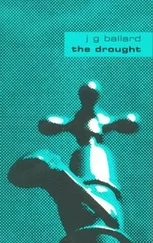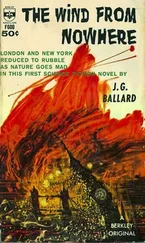1 ...8 9 10 12 13 14 ...19 I slid down the slope towards Mrs Tootle and selected three choice pieces of coke from my tin.
‘Jamie … I can’t take those.’
‘You keep them, Mrs Tootle. Tell your sister I gave them to you.’
‘I will …’
A cup of herbal tea already brewing in her mind, she drifted off into the darkness. I felt sorry for her, but I needed her out of the way. When I was alone on the ash-tip, screened from the camp buildings by the kitchen roof, I crawled across the cinder slope to the brick wall of the annex.
Here was stored Lunghua camp’s food supply for the coming week – sacks of polished rice and cracked wheat, and straw bales of grey sweet potatoes. Crouching by the rear wall of the annex, I reached inside my jacket and withdrew a crude knife I had fashioned from a broken Chinese bayonet. All but two inches of the blade were missing when I found the weapon in a disused well behind the camp hospital, but I had honed it into a useful tool. During the hours I spent on the ash-tip, waiting for the next consignment of spent coals, I had noticed that the mortar surrounding the brickwork was little harder than dried mud. Either the Japanese engineers responsible for equipping Lunghua camp had never known that they were being cheated by the Chinese contractors, or they had not expected the war to last more than a few months before America sued for peace.
Selecting the lowest course, I scraped at the mortar, the sound of the blade lost in the rumble of engines at the airfield. Within ten minutes I had loosened the first brick. Carefully, I withdrew it from the wall, slid my fingers into the dark space and touched the coarse straw sacking of a bale of sweet potatoes.
The next two bricks fell into my hands, as if the entire wall of the annex was about to collapse. They lay beside me, like gold bars in the darkness. Later I would return them to the wall, using the white coal-dust as a substitute mortar. With any luck I would be able to revisit the food store without arousing the suspicions of Mr Christie, a former manager of the Palace Hotel, who guarded these mildewed potatoes and warehouse sweepings with fanatic zeal. If Mr Christie had his way, the food reserves of Lunghua camp would be larger than the Sincere Company’s department store, and all the internees would be dead.
I pulled the bricks from the soft mortar, steadily enlarging the aperture. The distant lights of the airfield threw silhouettes of the perimeter fence-posts on to the wall above my head. A straw sack filled most of the opening, but in the sweeping searchlight I could see the airless interior of the store-room, a mysterious inner world like the dwarfs’ cottage in Snow White . The heavy sacks slumbered against the walls, and their comforting bulk reminded me of a family of dozing bears. My few doubts about stealing the food were forgotten. Already I thought of crawling into the store-room and sealing the wall behind me. Peggy and I would sleep there, out of the cold, safe among the great drowsing sacks …
*
A signal flare exploded in the night sky. Its amber light trembled in a halo of white smoke. It fell slowly towards the open ground between the perimeter fence of the camp and the airfield boundary, reflected in the surface of a flooded paddy field.
Without thinking I stood up, my shadow leaping across the wall of the annex. Fifty feet from me four figures were caught by the intense light, their orange faces like lanterns in the darkness. Two of the men had already climbed through the wire, and a third knelt with one leg through the sagging strands. They shouted to each other above the spitting flare, and the man caught in the wire tore off his shirt and stumbled through the grass towards the paddy field. His shirt hung on the wire like a ragged flag.
Torches veered across the ground on both sides of the fence. Armed Japanese soldiers stood in the deep grass between the perimeter fence and the airfield. Already the would-be escapers had stopped and were waiting for the Japanese to approach them. The fourth figure stood by the wire, and began to disentangle the tattered shirt. When he looked up I recognised the blond hair and pinched face of David Hunter.
The signal flare fell into the paddy field and was swallowed by its black surface. Taking my chance, I scrambled from the ash-tip and darted past the rear door of the kitchens. I tripped over my cinder-tin, scattering the precious coke, and stumbled into a torch-beam that filled my face. Rifle raised, Private Kimura blocked the path leading to the children’s hut, the night mist rising from his nostrils. Beside him stood Sergeant Nagata, the beam of his torch tapping my head as he watched his men round up the escaping prisoners. When they had been knocked to the ground, Sergeant Nagata beckoned me to him. I waited for him to slap me, but he stared into my face as if he had difficulty in recognising me, and found it scarcely conceivable that I, of all the internees in Lunghua, should want to escape.
Later we sat on one side of the wooden table in the guard-house. The Japanese soldiers stood against the wall, their boots covered with wet grass. The camp commandant, Mr Hyashi, roused from his quarters in the staff bungalows, paced up and down, doing his best to control himself. A former diplomat at the Japanese Embassy in London, he was a small and precise man of painstaking nervousness, the only Japanese civilian in the camp and as frightened of Sergeant Nagata as any of the prisoners. Long pauses interrupted his interrogation, as he formulated the necessary phrases in his laboured English.
Bored by this time-wasting, Sergeant Nagata strolled behind us, slapping our heads at random. My ears rang, as they had done after the bomb in the Avenue Edward VII. I was sure we would soon be too deaf to understand Mr Hyashi’s halting questions.
At one end of the wooden bench, his chest and face bruised by the rifle stocks, was a 29-year-old Londoner called Mariner. After being discharged from the Shanghai Police for robbing a rickshaw coolie he had become a foreman at the Shell terminal, and had scarcely stirred from his bunk since entering the camp. Beside him were the Ralston brothers, stable lads who had come out from England to work at the Shanghai racecourse. They joked nervously with David Hunter, who sat between them with his head lowered, blond hair streaked with blood.
Why David, with his caring parents, should have tried to escape from Lunghua puzzled me, and clearly puzzled Mr Hyashi.
‘You walked … through the … fence?’ He pointed at Mariner. ‘You?’
‘We didn’t walk, no. We climbed through the fence,’ Mariner explained half-facetiously. ‘You know, stepped like …’
The older Ralston inclined his head, dripping blood on to my arm, and said in a stage-whisper: ‘I knew I got these cuts somewhere.’
Both Ralstons tittered, and Sergeant Nagata stepped behind them and slapped their heads with his hard fist. They fell forward across the table, dazed but still smiling in a cracked way, and unable to hear Mr Hyashi’s next question for which they were punched again.
I frowned at David, warning him to keep a straight face, but he was caught up by the Britishers’ horseplay. Without thinking, David began to titter with them, tears streaming across his cheeks. He avoided my eyes, as if he was glad to be caught and was prepared to be punished. Like the Chinese, they laughed because they were frightened, but to Mr Hyashi and Sergeant Nagata they were being deliberately insolent in a peculiarly British way, never more arrogant than when they had blundered into defeat.
Baffled by them, Mr Hyashi took up his position at the head of the table, forced to preside over this deranged meeting for which his diplomatic training at the Foreign Ministry in Tokyo had not prepared him. He stood a few inches from me, and I could feel him trembling as Sergeant Nagata slapped the laughing Ralstons. I was so frightened that I, too, wanted to laugh, but already I was wondering what would happen when the sergeant discovered my attempt to break into the food store.
Читать дальше









